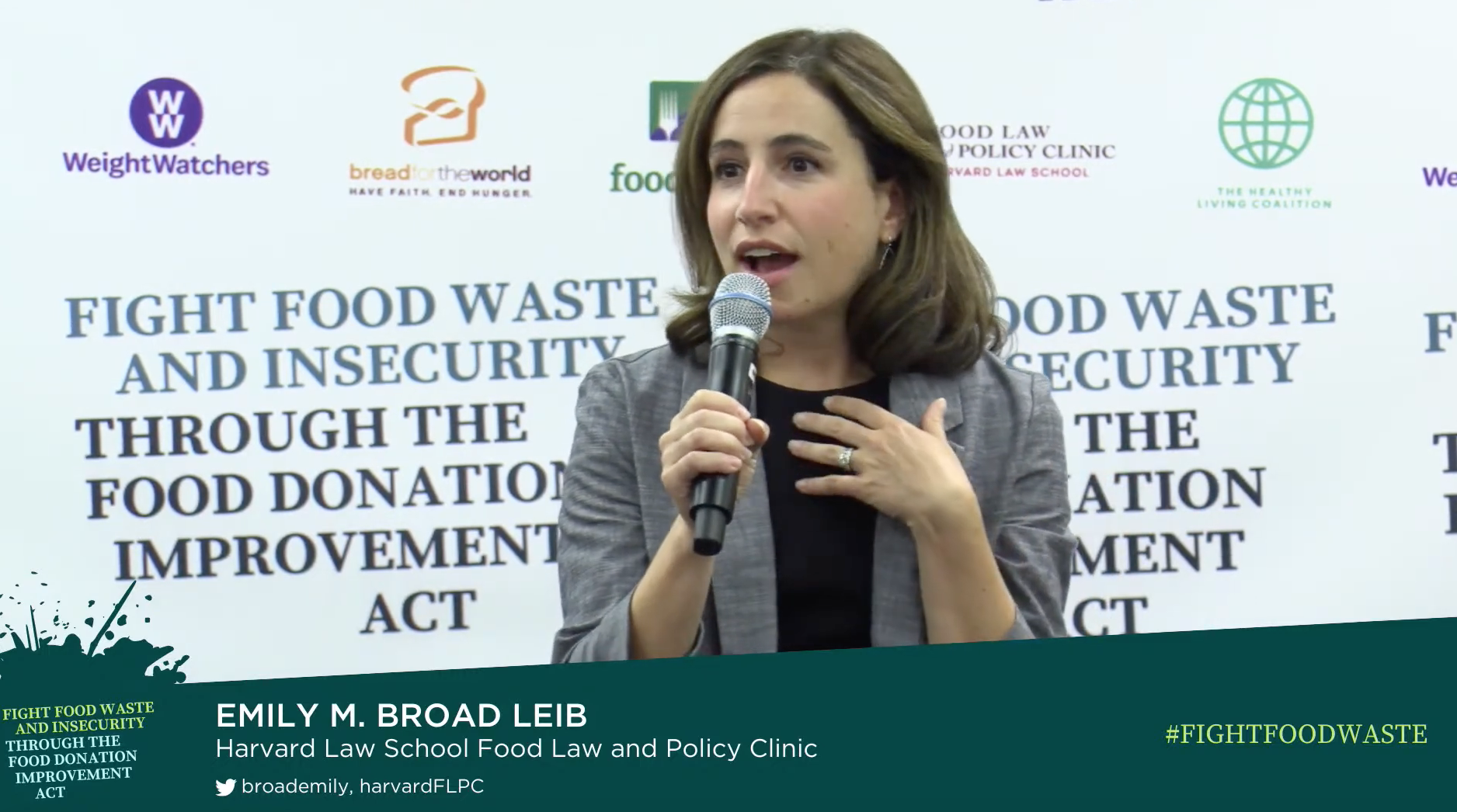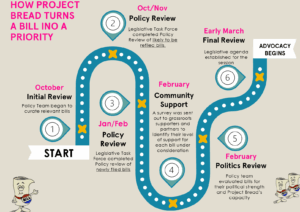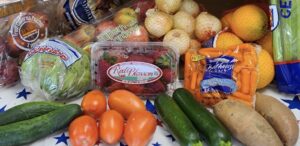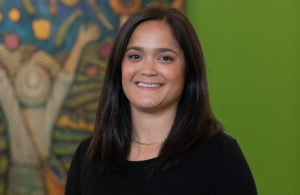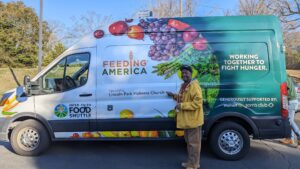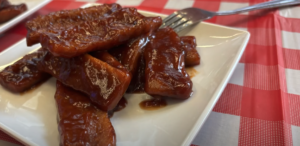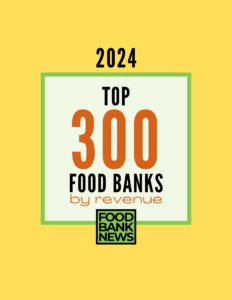Just about every week, the Food Law and Policy Clinic at Harvard Law School fields questions from organizations that are concerned about their liability related to donated food.
It wasn’t supposed to be this way.
The Bill Emerson Good Samaritan Food Donation Act, passed in 1996, was designed to encourage individuals and entities to donate food to nonprofit agencies without fear of liability. While the Act achieved that goal to a good extent, shortcomings in the law and a lack of clarity have lessened its impact.
As Dana Siles, Partnerships Director at the food recovery organization, Rescuing Leftover Cuisine, put it, “Our consistent experience is that the overwhelming majority of businesses are unsure of or unaware of the legal protections.” Siles made her comments last week at a convening in D.C. focused on fighting food waste and organized by the food advocacy group, Food Tank.
Now the Food Donation Improvement Act offers the opportunity to strengthen the previous legislation, largely through three main provisions, according to Emily Broad Leib, Director of Harvard Law School’s Food Law and Policy Clinic, speaking at the same event.
The new Act first will require the USDA to put out regulations explaining the existing Emerson Act. “Congress passed this amazing legislation, but didn’t put anyone in charge of fleshing it out,” Leib said. Clarifying the law will not only offload some of the inquiries coming into her office, but “will make it really easy for businesses.”
Another provision will let entities like farms, schools and restaurants donate food directly to individuals in need. Currently, organizations are required to send their food to a nonprofit like a food pantry, which in turn distributes it to individuals. This can be especially frustrating for schools that may have leftover food at the end of the day, and have to send it to a third party, rather than give it to kids directly.
Finally, the Act gives organizations the option of charging a small fee for the food they distribute, which can help cover costs like transportation. As Leib noted, “The cost of giving away food is not free.”
Leib and others expressed confidence that the bill could be passed, especially given its bipartisan support. “This is common sense,” said Rep. Jim McGovern, D-Mass, who introduced the bill in December and also spoke at the event. “This is something we can all agree on.”
Given the enormity of the food waste problem – an estimated 35% of all food grown and produced is discarded – the assembled leaders took the opportunity to float other ideas, as well.
McGovern suggested a nationwide office within the USDA that would oversee food rescue efforts across the country. “This issue needs to be elevated within the USDA,” he noted.
Chef and anti-hunger advocate Tom Colicchio, noting that farmers would also gain legal protections through the proposed law, recommended the creation of food hubs that could lightly process and freeze produce reclaimed from farms. Farmers could then sell the prepared food to schools, helping to supply school lunches while also creating a huge new market for farmers.
“We need to think big again,” McGovern said. “We need to fix this problem.” – Chris Costanzo
CAPTION ABOVE: Emily Broad Leib of the Food Law and Policy Clinic at Harvard Law School, speaking at a Food Tank event last week.
Like what you’re reading?
Support Food Bank News
This article was made possible by the readers who support Food Bank News, an editorially independent nonprofit media organization. Food Bank News is not funded by any government agencies, nor it is part of a larger association or corporation. Your support helps ensure our continued solutions-oriented coverage of best practices in hunger relief. Thank you!
